|
Getting your Trinity Audio player ready...
|
I. Introduction
In today’s digital landscape, the intertwining of social media and Search Engine Optimization (SEO) is more significant than ever. To understand digital marketing better, we need to know the different roles of SEO and social media.
SEO, the backbone of digital visibility, revolves around optimizing a website to rank higher in search engine results. It’s about improving website content, structure, and user experience to meet the standards of search engines like Google. Social media is a platform for interacting with an audience, promoting brands, and sharing content in real-time.
This article aims to explore the symbiotic relationship between social media and SEO. We’ll navigate through the ways in which social media can influence SEO, from driving website traffic to enhancing brand reputation. This information will help digital marketers and business owners understand why it is important to combine social media with their SEO strategies. It also provides practical tips to make the most out of this combination.
Whether you’re an experienced digital marketer or a business owner exploring the digital world, this guide will give you the information and tools you need to use social media to improve your SEO. Discover the power of social media in boosting your online presence and search engine rankings.
II. The Fundamentals of SEO and Social Media
Navigating the world of digital marketing requires a solid understanding of both SEO and social media. These two components come together to create a powerful tool that improves online visibility and engages the audience. Let’s break down the basics of each and explore how they intertwine.
1. SEO Basics
At its core, SEO is about making your website more visible and appealing to search engines. This involves several key elements:
- Keyword Optimization: Identifying and incorporating relevant keywords into your website’s content to match the search queries of your target audience.
- Content Quality: Creating valuable, informative, and engaging content that meets the needs of your audience and encourages them to stay longer on your site.
- Website Structure and User Experience: Ensuring your website is easy to navigate, loads quickly, and provides a positive user experience.
- Backlinks: Building a network of links from other reputable websites to your own, which signals to search engines that your site is a credible source of information.
2. Social Media Basics
Social media is the digital stage for brand storytelling and audience interaction. Its fundamental aspects include:
- Content Sharing: Distributing engaging and relevant content that resonates with your audience and encourages interaction.
- Community Building: Creating a loyal following by consistently engaging with users, responding to comments, and fostering a sense of community.
- Brand Presence: Establishing and maintaining a strong, consistent brand voice and aesthetic across various social platforms.
- Analytics and Feedback: Utilizing social media analytics to understand audience behavior and preferences, and using this data to refine your strategies.
3. How They Intersect
The intersection of SEO and social media is where the magic happens. When used together, they can amplify each other’s effectiveness:
- Driving Traffic: Social media can be a significant traffic driver to your website. Sharing content that links back to your site encourages your followers to visit, increasing traffic and potentially improving your SEO ranking.
- Brand Awareness and Search Queries: A strong social media presence can boost brand awareness, which can, in turn, lead to more branded search queries on search engines.
- Content Distribution: Social media offers a platform to share and promote your content, reaching a wider audience and potentially leading to more inbound links, which are beneficial for SEO.
To enhance your digital marketing strategy, you should understand the basics of both SEO and social media and how they work together. This synergy, when executed well, can lead to increased visibility, higher search rankings, and a more robust online presence.
III. Enhancing SEO through Social Media
The synergy between social media and SEO is undeniable. When leveraged correctly, social media can significantly enhance your SEO efforts. Here’s how you can use social media to boost your SEO:
1. Increasing Visibility and Traffic
One of the primary ways social media contributes to SEO is by increasing your website’s visibility and traffic. Every post shared on social media that links to your website is an opportunity for potential customers to visit your site. This increase in traffic signals to search engines that your website is valuable, potentially improving your search rankings.
- Tip: Share high-quality content from your website on social media regularly to keep your audience engaged and encourage visits to your site.
2. Building Links through Social Engagement
Social media can be a powerful tool for building links, a key factor in SEO. Sharing your content on social media can help you get noticed by influencers, bloggers, and website owners who may link to your content on their own sites.
- Strategy: Create content that is not only valuable but also share-worthy. Infographics, insightful blog posts, and trending topics are more likely to be shared and linked to.
3. Social Signals and SEO
Although there is debate about the direct impact of social signals (likes, shares, comments) on SEO rankings, these interactions can enhance the visibility and reach of your content. More visibility can lead to more traffic and potentially more backlinks, which are beneficial for SEO.
- Approach: Encourage engagement by asking questions, running contests, or creating interactive content like polls or quizzes.
4. Enhanced Keyword Strategy
Social media can be a goldmine for keyword research. The words and hashtags your audience uses on these platforms can show which keywords they use when searching online.
- Implementation: Monitor trending topics and hashtags in your industry on social media to inform your website’s keyword strategy.
5. Local SEO Boost
For businesses with a local presence, social media can be instrumental in enhancing local SEO. Platforms like Facebook and Instagram allow businesses to share location-specific content, attract local audiences, and increase local brand awareness.
- Action Plan: Regularly update your business’s location information on social media, engage with local community groups, and share location-specific content.
In summary, social media doesn’t just complement your SEO strategy; it can actively enhance it. Social media is a powerful tool for SEO. It can help increase website traffic, build links, influence social signals, improve keyword strategy, and boost local SEO. Being consistent and engaged on social media is crucial. The more active and engaged you are, the more it will benefit your SEO.

IV. Effective Social Media Strategies for SEO
To get the most out of SEO from social media, it’s important to use strategies that boost visibility, encourage interaction, and build links. Here are some effective social media strategies to boost your SEO:
1. Content Creation and Sharing
Creating and sharing high-quality, relevant content is at the heart of any successful social media strategy. This content should be tailored to both your audience and your SEO goals.
- Diverse Content Types: Incorporate a mix of blogs, videos, infographics, and other media to engage different segments of your audience.
- Consistency and Timing: Regularly post content and find the optimal times when your audience is most active to maximize visibility.
- SEO-Friendly Social Posts: Include relevant keywords in your social media posts to align with your SEO strategy.
2. Using Hashtags Effectively
Hashtags are not only social media trends. They can help you reach more people and connect with new audiences.
- Relevant Hashtags: Use hashtags that are relevant to your content and industry, making your posts more discoverable.
- Trending and Branded Hashtags: Capitalize on trending hashtags where appropriate and create branded hashtags for campaigns to enhance brand recognition.
3. Engaging with the Audience
Social media is a two-way street. Engaging with your audience can build a community around your brand and increase the likelihood of shares and mentions.
- Active Engagement: Respond to comments, participate in conversations, and acknowledge user-generated content related to your brand.
- Encourage User Interaction: Ask questions, run polls, and create shareable content to encourage user participation.
4. Collaborating with Influencers
Working with influencers can help your brand reach more people and gain credibility. This can indirectly improve your SEO by driving more traffic and engagement.
- Strategic Partnerships: Collaborate with influencers who align with your brand values and can authentically promote your content.
- Influencer Content: Leverage the content created by influencers on your own channels to maximize reach.
5. Analyzing and Adapting
Social media strategies require continuous monitoring and adaptation. Utilize analytics tools to track the performance of your content and make data-driven decisions.
- Performance Metrics: Track engagement rates, click-through rates, and other relevant metrics to gauge the effectiveness of your content.
- Adapt and Evolve: Use insights from analytics to refine your strategy, experimenting with different types of content, posting schedules, and engagement techniques.
6. Integrating with Overall Marketing Strategy
Make sure your social media efforts are aligned with your overall marketing strategy, which includes email marketing, content marketing, and other digital marketing activities.
- Cross-Promotion: Promote your social media content through other channels and vice versa to create a cohesive marketing message.
- Unified Brand Message: Maintain a consistent brand voice and message across all platforms to strengthen brand identity.
Using these strategies can help you improve your brand’s online presence and boost your SEO efforts through social media. To succeed, adaptability is crucial. Keep an eye on social media changes, and adjust your strategy based on performance data and audience feedback.
V. Measuring the Impact of Social Media on SEO
To assess the effectiveness of social media in boosting your SEO efforts, it’s essential to measure and analyze specific metrics. This helps in understanding the direct and indirect impacts of your social media strategies on SEO. Here are key ways to measure this impact:
1. Website Traffic from Social Media
You can measure the impact of social media on SEO by tracking the traffic from social media to your website.
- Analytics Tools: Use tools like Google Analytics to track referral traffic from social media.
- Traffic Trends: Monitor trends in traffic volume, especially after significant social media campaigns or content sharing, to gauge effectiveness.
2. Engagement Metrics
Social media engagement, like getting likes, comments, shares, and mentions, shows how much your audience likes your content.
- Social Media Analytics: Platforms like Facebook Insights or Twitter Analytics provide detailed reports on engagement metrics.
- Correlation Analysis: Look for correlations between high engagement rates on social media and increased website traffic or improved search rankings.
3. Search Ranking Improvements
Although the effect of social media on search rankings is still being debated, using social media effectively can sometimes lead to improved search rankings.
- SEO Tools: Use SEO tools to monitor changes in your website’s search engine rankings for targeted keywords.
- Keyword Performance: Track how well the keywords used in your social media content perform in search engine results.
4. Quality and Quantity of Backlinks
An increase in quality backlinks can be a positive outcome of effective social media engagement.
- Backlink Analysis Tools: Tools like Ahrefs or Moz can help track the number and quality of backlinks to your site.
- Backlink Sources: Identify whether these backlinks originated from social media sharing or influencer collaborations.
5. Brand Mentions and Sentiment Analysis
Social media can enhance brand visibility, leading to increased brand mentions across the web, which can indirectly impact SEO.
- Mention Tracking Tools: Use tools like Brand24 or Mention to track brand mentions and analyze sentiment.
- Impact on SEO: Monitor if increases in positive brand mentions correlate with improved search visibility or website traffic.
6. Conversion Rates
The main purpose of improving SEO through social media is to increase conversions, such as sales, sign-ups, or other desired actions.
- Conversion Tracking: Set up conversion tracking in your analytics tool to measure conversions originating from social media traffic.
- A/B Testing: Experiment with different social media strategies to see which yield higher conversion rates.
Monitoring these metrics regularly helps you understand how well your social media strategies contribute to your SEO goals. Using a data-driven approach helps improve strategies for social media. This ensures that your efforts on social media are engaging and have a positive impact on SEO performance.
VI. Future Trends
The digital marketing landscape is constantly evolving, and staying ahead of trends is crucial for success. Here are some anticipated future trends in the intersection of social media and SEO that you should be aware of:
1. Increasing Importance of Social Media for Search Engines
As search engines continue to evolve, they may increasingly take social media presence and engagement into account. This could mean that a strong social media presence might become more directly influential in SEO rankings.
- Adaptation: Brands should prepare for potential changes in search engine algorithms by maintaining a robust and engaging social media presence.
2. The Rise of Social Search
More users are turning to social media platforms to search for businesses and services. This social search trend could lead to these platforms acting more like search engines themselves.
- Optimization for Social Search: Optimizing your social media content and profiles for search within these platforms will become increasingly important.
3. Integration of AI and Machine Learning
Artificial intelligence (AI) and machine learning are becoming more prevalent in both SEO and social media. These technologies can help in understanding user behavior, personalizing content, and optimizing for search queries.
- Leveraging AI: Utilizing AI-driven tools for content creation, keyword analysis, and user engagement can give businesses a competitive edge.
4. Video Content Dominance
Video content is expected to continue dominating social media. As platforms like YouTube also function as search engines, optimizing video content for SEO will be crucial.
- Video SEO Strategies: Incorporate SEO tactics into your video marketing, including keyword-rich titles, descriptions, and the use of video transcriptions.
5. User Experience as a Key Factor
The importance of user experience (UX) in both social media and SEO is anticipated to grow. Ensuring that users have a positive interaction with your content and platforms will be vital.
- Focus on UX: Prioritize creating a seamless, engaging user experience across all digital platforms.
6. Voice Search and Conversational Queries
With the rising use of digital assistants, voice search is becoming more prevalent. This trend is shifting the focus towards conversational keywords and natural language in SEO.
- Optimization for Voice Search: Adapt your SEO strategy to include conversational keywords and phrases that are likely to be used in voice searches.
7. Greater Emphasis on Local SEO and Social Media
Local SEO is increasingly becoming intertwined with local business presence on social media. Businesses will need to leverage social media to target local audiences effectively.
- Localized Social Media Strategies: Develop localized content and engage with local community groups on social media platforms.
Businesses should stay updated on trends and prepare for the changes they bring. This will help ensure that their SEO and social media strategies continue to be effective and forward-thinking. The key will be to remain adaptable, continuously monitor industry developments, and embrace new technologies and approaches to digital marketing.

Conclusion
As we’ve explored throughout this article, the relationship between social media and SEO is both intricate and dynamic. Combined digital marketing strategies can greatly improve online visibility, brand awareness, and overall business success. Here’s a summary of the key points:
- Interconnectedness: The interplay between social media and SEO is evident. Social media not only drives traffic and enhances online visibility but also contributes to the overall SEO strategy through engagement, backlinks, and content distribution.
- Strategic Approach: Effective use of social media for SEO requires a strategic approach. This includes creating quality content, leveraging hashtags, engaging with the audience, and continuously analyzing and adapting strategies.
- Evolving Trends: The digital landscape is continuously evolving. Staying ahead of trends like the rise of video content, the importance of user experience, voice search, and the growing significance of social search will be crucial for future SEO success.
- Measuring Impact: The effectiveness of integrating social media into SEO strategies can be measured through various metrics such as website traffic, engagement rates, search ranking improvements, and conversion rates.
- Future-Proofing: To remain competitive, businesses must adapt to the changing landscape by embracing new technologies, focusing on user experience, and preparing for future shifts in search engine algorithms and user behavior.
In conclusion, the synergy between social media and SEO is not just beneficial but essential in the current digital era. By understanding and leveraging this relationship, businesses can create a more robust and effective online presence. To be successful, we need to adapt, plan strategically, and understand social media and SEO dynamics. Businesses equipped with these tools can successfully navigate the dynamic digital landscape and succeed in their online endeavors.
FAQs
1. How directly does social media impact SEO rankings?
Social media primarily impacts SEO indirectly. While social media signals (likes, shares, comments) don’t directly affect search rankings, the increased visibility and traffic from social media can lead to factors that search engines do consider, such as site traffic, time on site, and backlinks.
2. Can social media profiles rank in search engine results?
Yes, social media profiles can rank in search engine results. Maintaining active and professional social media profiles is crucial for a company because they often appear on the first page of search results for brand name searches.
3. Is it necessary to be active on all social media platforms for effective SEO?
No, it’s not necessary to be active on all platforms. It’s more important to identify and focus on platforms where your target audience is most active and engaged. Quality and relevance trump quantity when it comes to effective social media presence for SEO.
4. How important are hashtags in social media for SEO?
Hashtags are important in increasing the visibility of your social media content. They help categorize content and make it discoverable, potentially leading to increased engagement and traffic to your website. However, they should be used judiciously and relevantly.
5. Can influencer collaborations on social media impact SEO?
Yes, influencer collaborations can impact SEO. Influencers sharing your content or mentioning your brand can bring more traffic, engagement, and backlinks to your site, which is good for SEO.
For Orlando-based businesses seeking to enhance their online presence, Krotov Studio offers tailored SEO services that align with the latest 2024 trends. Our friendly team is ready to help your business leverage these innovative strategies for better Google rankings and online success.
